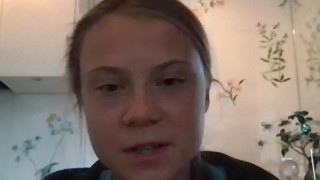
It sounds like the job interview from hell. Olivia Bland ended up crying at the bus stop, after what the 22-year-old describes as being deliberately torn to shreds over everything from her writing skills to her posture (apparently even “my arms were wrong, and the way I sat was wrong”). Tech company boss Craig Dean, the man on the other side of the desk, ended up posting what he called a “sleep-deprived and anxiety-driven” apology on Twitter after her account of it all went viral.
Tell me your gender, age and political leanings and I can probably guess with reasonable certainty whether your sympathies lie with her or with him. But if nothing else, the rejection email she sent, explaining where Web Applications UK could stick the job it eventually offered her, certainly demonstrates the “timely, concise and effective” communications skills stipulated in the job description.
Employers forget how much they too still had to learn in their 20s and more importantly how they learned it
It should be said that Dean’s board of directors later put out a statement, insisting it was confident that there had been “no bullying or intimidation”, while promising to reflect on what had happened. But whatever went on inside that interview room, it patently hasn’t ended well for anybody. Bland compares the whole thing to a conversation with an abusive ex, picking apart everything that was supposedly wrong with her; social media naming and shaming being what it is, Dean must now be experiencing something very similar. Since she must have wanted the job originally, and he evidently wanted her to have it, it should not have been impossible to put two and two together without making something that sounds like a particularly squirm-inducing episode of The Office. And yet here we are. So much for trendy management theories about “testing the resilience” of prospective employees.
For Dean presumably didn’t pluck his unorthodox conversational gambits out of thin air. The so-called “stress interview”, designed to provoke, embarrass and intimidate interviewees to see how they cope in a crisis, has evidently come a long way since apocryphal stories of Oxbridge dons greeting nervous sixth-formers by putting their feet up on the desk and ordering them to “impress me”. A quick Google of US recruitment sites uncovers endless suggested comments for the would-be boss from hell, ranging from, “It doesn’t look like you accomplished much in your last position,” to, “If you were really good, you would have been promoted. Why haven’t you been?” Other techniques include asking the interviewee questions that seem inappropriately personal to put them off their stride (bizarrely, Bland says she was asked about her childhood and whether her parents were still together), or simply being deliberately rude. Sighing and rolling your eyes during answers, interrupting to take phone calls in the middle of the conversation, even turning your back on the interviewee, all come recommended.

It’s the employment equivalent of “negging”, or attempting to pick up women by insulting and undermining them so that in theory they’ll be even more desperate for your approval which made for some truly grim dates during its briefly fashionable heyday. In stress interview theory, the candidate is supposed to remain emotionless throughout, thereby demonstrating that they won’t lose their cool with a difficult client and can take criticism. It says a great deal about what’s wrong with management in too many British companies that anyone would think this is how you uncover talent.
Yet sadly, not many candidates would have the nerve to fight back in the current job market. Bland is trying to enter a competitive industry at a time when a lot of people aren’t hiring, at least until they know what’s happening with Brexit. She’s far from the only English graduate with an apparently glittering CV being made to jump through ridiculous hoops for jobs that almost certainly weren’t what they dreamed of in college. For those further down the pile it is, if anything, worse.
A few years ago, Currys had to apologise after a man applying for a job in one of its stores was asked to do a “robot dance” in the interview. In the pub and restaurant trade, it has become all too common to be asked to work an unpaid shift by way of interview, a tactic seemingly used by some more unscrupulous managers to fill awkward gaps in the rota. The tougher the economic climate gets, the stiffer the competition, and the more brutal the efforts made to weed out a desperately overcrowded field.
It’s true that some industries aren’t for shrinking violets, my own included. Newsrooms can be brutal, and so can the places in which young reporters may find themselves in pursuit of a story. But good reporters need empathy and sensitivity to deal with the people whose lives they’re invading, as well as grit. An industry staffed with human battering-rams serves nobody.
And while plenty of employers doubtless have their own horror stories of snowflake graduates with ridiculously high expectations and badly spelled CVs, all too often they’re forgetting how much they still had to learn in their 20s and, more importantly, how they learned it.
Nobody looks back with gratitude and affection on the bosses who had evidently watched way too many series of The Apprentice. It’s the ones with the patience to explain, and the skill to build up other people’s confidence rather than knocking it down, for whom you end up going the extra mile. Ironically, Craig Dean must have been exposed to something of a stress test himself over the past 24 hours, with half the internet now scoffing at his management techniques. Somehow, I doubt he has emerged from it convinced of the usefulness of ritual humiliation.
• Gaby Hinsliff is a Guardian columnist
As 2019 begins…
… we’re asking readers to make a new year contribution in support of The Guardian’s independent journalism. More people are reading and supporting our independent, investigative reporting than ever before. And unlike many news organisations, we have chosen an approach that allows us to keep our journalism accessible to all, regardless of where they live or what they can afford. But this is only possible thanks to voluntary support from our readers – something we have to maintain and build on for every year to come.
Readers’ support powers The Guardian, giving our reporting impact and safeguarding our essential editorial independence. This means the responsibility of protecting independent journalism is shared, enabling us all to feel empowered to bring about real change in the world. Your support gives Guardian journalists the time, space and freedom to report with tenacity and rigor, to shed light where others won’t. It emboldens us to challenge authority and question the status quo. And by keeping all of our journalism free and open to all, we can foster inclusivity, diversity, make space for debate, inspire conversation – so more people, across the world, have access to accurate information with integrity at its heart. Every contribution we receive from readers like you, big or small, enables us to keep working as we do.
The Guardian is editorially independent, meaning we set our own agenda. Our journalism is free from commercial bias and not influenced by billionaire owners, politicians or shareholders. No one edits our editor. No one steers our opinion. This is important as it enables us to give a voice to those less heard, challenge the powerful and hold them to account. It’s what makes us different to so many others in the media, at a time when factual, honest reporting is critical.
Please make a new year contribution today to help us deliver the independent journalism the world needs for 2019 and beyond.
The Guardian













Leave a comment